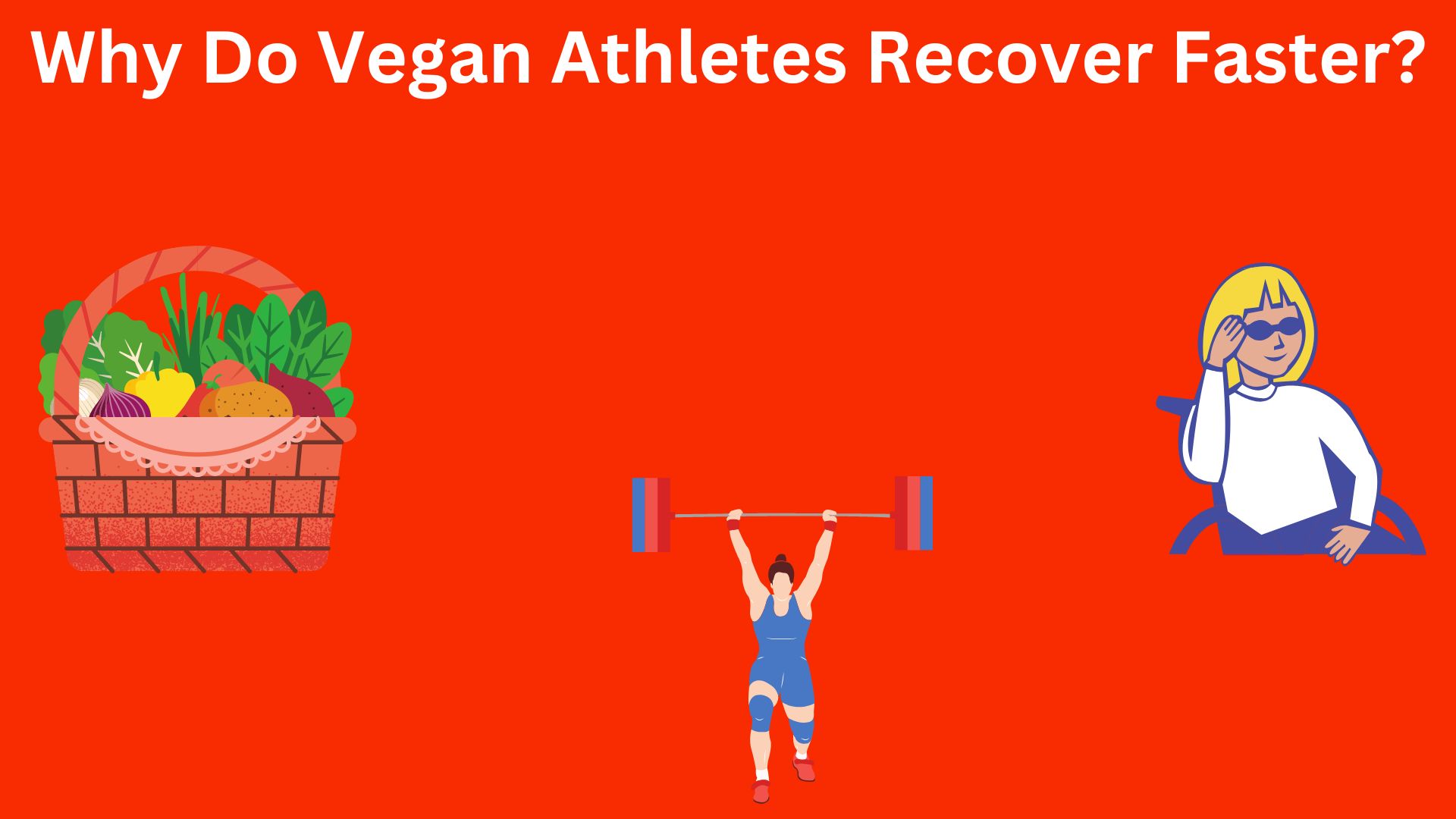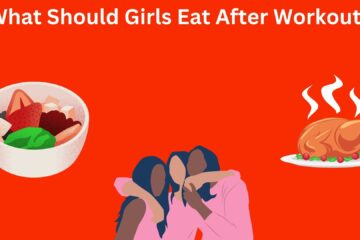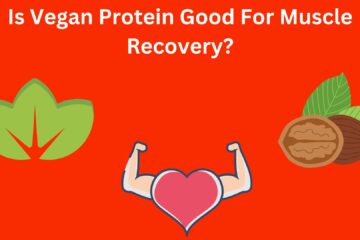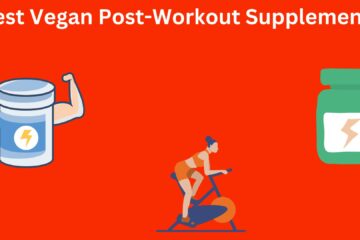Welcome to our blog post on “Why Do Vegan Athletes Recover Quicker?”
Athletes at all levels, from amateur to professional, are constantly looking for ways to increase their performance and recuperate faster after training sessions and competitions. Veganism, a dietary strategy that has gained popularity in recent years, comprises refraining from all animal products, including meat, dairy, and eggs.
A growing number of studies suggest that eating a vegan diet can offer a variety of health benefits, including faster recovery periods for athletes. In this blog post, we will look at how a vegan diet might help athletes recover faster, as well as some of the potential problems and concerns to bear in mind when eating vegan as an athlete.
How a Vegan Diet Helps Athletes Recover Faster
1. Adequate nutrient intake
When correctly designed, a vegan diet can provide all of the nutrients that an athlete requires to support their training and recovery. Protein, carbs, lipids, vitamins, and minerals are all included.
2. Anti-inflammatory properties
Plant-based meals, such as fruits, vegetables, nuts, and seeds, are strong in antioxidants and other anti-inflammatory substances. This can aid in the reduction of muscular soreness and inflammation, resulting in a faster recovery.
3. Improved hydration
Many plant-based foods, such as fruits and vegetables, contain a lot of water, which can help athletes stay hydrated. Hydration is essential for good recovery and performance.
4. Improved gut health
A fiber-rich vegan diet can assist aid digestion and support a healthy gut microbiota. This can boost nutrient absorption and general health and recuperation.
5. Weight management
A vegan diet can help you control your weight and body fat levels, which can help you recover and perform better. This is due to the fact that plant-based diets are often lower in calories and fat than animal-based ones.
6 Potential Challenges When following A Vegan Diet As An Athlete
1. Ensuring adequate nutrient intake
If vegan athletes’ diets are not carefully planned, it can be difficult for them to eat enough protein, iron, and vitamin B12.
2. Finding suitable food options when traveling or eating out
When traveling or eating out, vegan athletes may struggle to locate adequate meal options, especially if they are in a place with few vegan options.
3. Dealing with social pressure or criticism
Friends, family, and teammates who do not understand or support vegan athletes may put them under social pressure or criticize them.
4. Dealing with weight gain or loss
Some vegan athletes may struggle to maintain their target weight because a vegan diet might cause weight gain or loss based on the individual’s personal needs and food choices.
5. Managing energy levels
Some vegan athletes may find it difficult to maintain consistent energy levels if their diet is not adequately balanced.
6. Dealing with cravings
Vegan athletes may experience cravings for non-vegan foods, especially if they are new to a vegan diet or are used to eating animal products.
4 Considerations To Keep In Mind When Following A Vegan Diet As An Athlete
1. Adequate nutrient intake
Vegan athletes must consume adequate amounts of all important elements, including protein, carbs, lipids, vitamins, and minerals. This may necessitate careful meal planning and, if necessary, the use of supplements.
2. Hydration
Hydration is essential for good recovery and performance. Vegan athletes should watch their fluid intake and pick hydrating foods and beverages such as fruits, vegetables, and water.
3. Meal timing and planning
Vegan athletes should arrange their meals and snacks so that they have adequate dietary options at all times. This could include preparing snacks or meals to take with you on the go.
4. Professional guidance
Working with a sports nutritionist or other healthcare professional to ensure that vegan athletes’ dietary needs are satisfied might be beneficial. This can aid in identifying nutrient deficits and developing a diet plan that is tailored to the athlete’s individual requirements.
Frequently Asked Questions On Why Vegan Athletes Recover Faster
Vegan athletes can get enough protein from a plant-based diet. Beans, lentils, tofu, tempeh, nuts, seeds, and whole grains are all plant-based protein sources. Vegan athletes may find that using a range of these sources in their diet helps them achieve their protein demands.
Yes, essential amino acids can be found in a range of plant-based foods, including beans, lentils, tofu, tempeh, nuts, and seeds. Vegan athletes must consume a range of these sources to ensure that their amino acid requirements are met.
Some vegan diets may be iron deficient if they lack iron-rich plant-based foods. Beans, lentils, tofu, tempeh, nuts, seeds, and whole grains are examples. Vegan athletes should incorporate these sources into their diet and, if necessary, consider taking a supplement.
Although not all vegan athletes use supplements, it may be beneficial for some to ensure that they are achieving their nutrient requirements. Vegan athletes should consult with a sports dietitian or healthcare expert to evaluate whether supplements are required.
A vegan diet can be appropriate for athletes of all levels and sorts, as long as it is carefully tailored to satisfy the nutritional demands of the person. Vegan athletes should consult with a sports dietitian or a healthcare expert to ensure that their nutritional requirements are met.
Conclusion
In conclusion, because of its ability to provide enough food intake, anti-inflammatory qualities, enhanced hydration, improved gastrointestinal health, and possibilities for weight management, a vegan diet may contribute to speedier recovery for athletes. It is crucial to highlight, however, that a vegan diet must be properly planned in order to receive all vital elements. To ensure that their dietary demands are met, vegan athletes should consult with a sports dietitian or a healthcare expert. Overall, a vegan diet that is well-planned can be a healthy and productive approach for athletes to supplement their training and recovery efforts.



